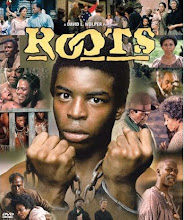MY UP'S AND DOWN'S
Written By: Mrs. Ina B. Hawkes
Research Field Worker, Georgia Writers' Project, Athens -
Edited By: Mrs. Maggie B. Freeman
Editor, Georgia Writers' Project, Athens - WPA Area -6
October 9, 1939
September 14, 1939
[Kert Shorrow?] (Negro)
Route # 1, Athens, Georgia
Mrs. Ina B. Hawkes
MY UP'S AND DOWN'S
It was just a small Negro shanty, just off the highway. I went up to the front door. I noticed it was open, but I found the screen door shut and latched.
I came back down off the porch and walked around the house. I saw an old Negro woman coming down a little grassy lane. I walked up to meet her. She looked a little tired. She had a white cotton sack on her back where she had been picking cotton and a big sun hat on. She looked up and appeared very much surprised to see me.
"Good morning, Aunty. Do you live here?" She said, "Good morning, Miss. Yes, man, I lives here. I aint been here so long though. Is der something I can do for yo?"
I told her that I wanted to talk to her a little while if she had time. She said, "Yes'um, but you see I don't want to be [empolite?] cause I won't raised dat way. But if you will come in I will talk to you while
I fix a little dinner. I works in the field all I can."
About that time I saw a small boy coming around the house with his cotton sack.
"My name is [Sadie?]," she said, "and dis is my great grandson here. I'se got seventeen chillun, Honey."
"How did you manage with so many children, Aunty?" I asked. "By the help of the Lawd. We didn't have much, but you know what the old frog said when he went to the pond and found jus a little water, don't you? Well, he said, "A little is better than none.' Dat's de way I all'ers felt about things.
"I was born and raised in Walton County. But dey is done changed things back over der so much. I was over der to see my daughter while back and, Lawdy mussy, chile, dey is done built a new bridge ah didn't know nothing about.
"Here, Sammy, make mama a fire in de stove while I gits a few things ready to cook."
The little boy had a kerosine lamp over the blaze and, before I could stop myself, I had yelled at him to get it away from that blaze. Aunt Sadie said, "Dat's right, Miss. Correct him. Chillun des days don't see no danger in nothing.
"Back in my day as far back as I can remember
my mother and father was [Marse?] Holt and Mistess Holt's slaves. 'Case we chilluns wus too, but slavery times wus over fo I wus big nuf to know very much 'bout hit.
"But I do know about [Marse?] Holt and Mistess Holt. Lawd, child, dey wus de best people in de world I do think. Ole Mistess use to make us go to bed early. She would feed us out under a walnut tree. She wouldn't let us eat lak chilluns do now. We would have milk and bread, and dey would always save pot liquor left over from the vegetables. They put corn bread in it. We little Niggers sho' injoyed hit though. Sometimes we would get syrup and bread and now and then a biscuit.
"[Marse?] and Mistess died, but Ma and Pa and we chillun just stayed on and waked hard. Pa and Ma both wus good farmers. But, Honey, talk 'bout slavery times, hit's mor lak slavery times now with chillun dan it wus den. 'Cause us didn't have to go to de fields til we wus good size chillun. Now de poor things has to go time dey is big nuf to walk and tote a cotton sack.
"Miss Ruth is [Marse?] and Mistess Holt's daughter. I wus fortunate to know Miss Ruth. She larnt me to say my A B C's. If I didn't know them or say them fast nuf she would slap me and make me do hit right". She got up and went over to an old washstand and got an old blue
back speller. "Here," she said, "look at dis and you will see whut she taught me wid. You can see why I loves dat book. I don't let nobody bother wid dat.
"I sits and looks at my little book lots of times and think of dem good old days. I went to regular school two months in my life.
"I thought I wus grown when I hopped up and married."
..."My life, Honey, is jus been ups and downs . Me and
pa and the chilluns always jus had to stay home and work 'cept on Saddays. We would always go to town and church on Sundays. We would fix a big box of oats and get up soon Sadday morning, and Tom and the boys would hitch up old Buck to the cart. Yes, dat old ox wus jus as fast as anybody's mule. He would take us to town and bring us back safe.
"I never will forget one Sadday we wus in town. It wus a treat to jus go to town for us, the lights wus so pretty, but coming home dat day a man stopped us. Me and Tom had most of the chilluns with us. He said he wanted to take our pictures, so he could save it and show it ot his grandchilluns.
"We jus sold old Buck in 1934. He wus gitting old and couldn't plow and git 'bout lak he used too. And we needed a mule too.
"Lawdy, dere's Tom now. He come in the back door, a little man not much older looking than I is."....




